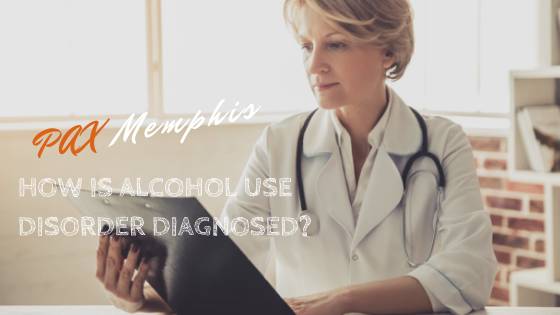Whether you’re researching alcohol rehab for yourself or a loved one, you may be wondering what the difference is between alcoholism and alcohol use disorder. While there is no official diagnosis for alcoholism, physicians use a set of 11 criteria to diagnose alcohol use disorder (AUD). Although there is a set of symptoms used to make this diagnosis, the accuracy of an AUD depends heavily on how honest a person is about answering their doctor’s questions.
Moreover, denial is a common attribute of people who suffer from addiction, so many people lie about their drinking habits. This makes diagnosing alcohol use disorder a difficult task. Dishonesty is such a problem that AUD is misdiagnosed more than 70% of the time.[1] For this reason, it’s unlikely that you’ll walk into a doctor’s office or addiction treatment center and leave with this diagnosis.
Alcoholism, on the other hand, is a term that was popularized by the 12-Step fellowship of Alcoholics Anonymous (AA). Within AA, they state that only the individual themselves can determine whether he or she is an alcoholic. As a result, identifying oneself as an alcoholic depends on how honest a person is with themselves about their drinking. While there is no medical diagnosis for “alcoholism,” many of the behaviors and patterns outlined in these programs are similar to those used to diagnose an alcohol use disorder.
Identifying a Drinking Problem
In most cases, friends and family are able to recognize a drinking problem before the individual themselves. While people who are addicted to alcohol might be clouded by denial, loved ones are often the first to see the behavioral changes and symptoms associated with alcohol abuse. For example, some common behaviors and signs that indicate a possible drinking problem include:
- Smelling like alcohol most of the time
- Showing up to family functions or social events while intoxicated
- Blacking out often
- Drinking throughout the day
- Hiding bottles
- Running into financial problems
- Changes in sleep patterns
- Lying to friends and family about alcohol use
- Mood swings
- Experiencing frequent hangovers or alcohol withdrawal symptoms
- Calling into work or skipping social functions to recover from drinking or continue drinking
A person who has a problem will alcohol will usually put drinking above all other priorities and have an inability to control how much they drink. However, every person’s drinking problem is different. Some people who abuse alcohol are binge drinkers, while others are what AA members would call “alcoholics.” That’s why the medical community uses 11 specific criteria to evaluate the severity of a person’s alcohol abuse.
How Alcohol Use Disorder is Diagnosed
When you visit a doctor or addiction specialist about your drinking problem, you will undergo an intake assessment that determines what kind of treatment you need depending on the severity of your alcohol use disorder. First, the doctor will ask you a series of questions related to your drinking habits and gather your complete medical history. Depending on your needs, you may undergo a physical or psychological evaluation. (Xanax) If you’re not already at an alcohol treatment center, you may be referred to a mental health professional or rehabilitation center.
Mental health professionals then use the Diagnostic and Statistical Manual of Mental Disorders, Fifth Edition (DSM-V) to evaluate your drinking patterns. The DSM-V is the latest manual published by the American Psychiatric Association is used to not only diagnose alcohol abuse, but also a variety of additional mental health conditions.[2]
Diagnosing Alcohol Use Disorder
The criteria outlined by the DSM-V to diagnose alcohol use disorder include:
- You have tried to stop drinking or cut back on the amount you drink but were unable to more than once
- You drink more or longer than you initially intended to
- It’s difficult to think about or concentrate on anything else because you want to drink
- You spend the majority of the time getting alcohol, drinking alcohol, and recovering from hangovers
- Drinking interferes with your responsibilities at home, work, or school
- You have given up important obligations that you once enjoyed in order to drink
- You continue drinking even if it’s causing problems with friends and family
- When you stop drinking you experience withdrawal symptoms and cravings
- You drink even though it causes or worsens an existing physical or mental health problem
- You’ve developed a tolerance so you have to drink more than you used to to feel drunk
- You have experienced or engaged in dangerous behaviors or situations while drunk
The number of criteria you meet over a one year period of time indicate how severe your problem with alcohol is. If you identify with 2-3 symptoms, it’s considered a mild alcohol use disorder. On the other hand, 4-5 symptoms indicate a moderate AUD, and 6 or more symptoms is considered severe.
Finding Help for Alcohol Use Disorder and Alcoholism
In the end, if you have a drinking problem that is severely affecting your life, it doesn’t matter what you call it. What matters is whether or not you’re willing to accept help and turn your life around for the better. Since every person is different and has different needs, treatment for alcohol use disorder takes on an individualized and evidence-based approach.
While people with a mild alcohol use disorder may be best suited for outpatient treatment, moderate and severe AUDs are typically treated at a residential alcohol rehab facility. These inpatient programs offer a full spectrum of care, including detox, counseling, outpatient, and aftercare.[2] Regardless of the severity of your drinking problem, if alcohol is causing problems in your life and you can’t stop alone, it’s time to seek help from an alcohol rehab near you.
References:
Medically Reviewed: September 25, 2019

All of the information on this page has been reviewed and verified by a certified addiction professional.










